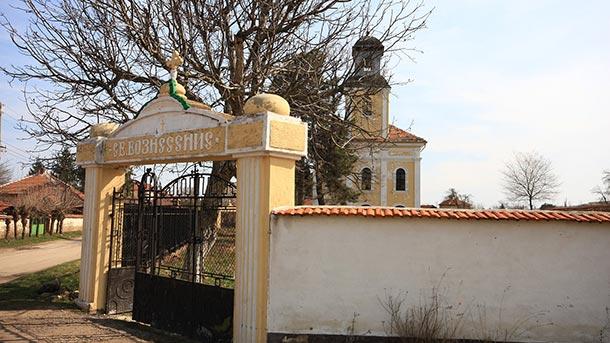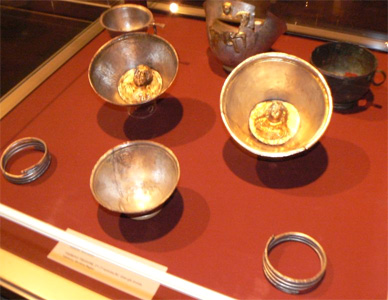Halfway between the Danube town of Lom and the city of Montana in northwestern Bulgaria the village of Yakimovo is situated. Few are those who know that in the seventh century the cavalry of Khan Asparoukh stepped on these lands after crossing the Danube to establish the new Bulgarian state. Traces of the khan are still here to remind us of the glorious past.

If you set aside ancient history, the modern rhythm of daily life in this village is similar to that in many other Bulgarian towns. Declining and aging population, weak local economy, and unemployment are all characteristic features of the Bulgarian transition to democracy which drags on for almost a quarter of a century.
Yakimovo was actually created by merging three villages - Pogorelets, Kotenovtsi and Voinitsi, says the Deputy Mayor of the municipality Konstantin Vladov. The expansion of these villages during the 50s of the past century actually led to their merging together. In the best years of the village some 5000 people used to live here. The Bulgarian demographic crisis did not skip the village of Yakimovo and the population now is of 1,600 people.
“The main road between Montana and the port of Lom passes  through the village", Konstantin Vladov goes on to say. "Agriculture predominates in the region as arable land in the municipality is about 18 000 hectares. This determines the daily life of citizens, as there are few industrial plants around.”
through the village", Konstantin Vladov goes on to say. "Agriculture predominates in the region as arable land in the municipality is about 18 000 hectares. This determines the daily life of citizens, as there are few industrial plants around.”
Part of the arable land is owned by investment funds. Maize, sunflower, wheat and barley are most often grown here. For some years, however, rapeseed, which is used for production of biofuel, has been displacing more traditional crops.
Agriculture creates most of the jobs but in order to reduce the number of unemployed in the municipality, policy makers rely on employment from the budget. Although temporary, these jobs prove helpful to people. However, the majority of the young people from the village and the municipality chose the road leading outside Bulgaria. They find seasonal work mainly in Germany, Italy and Spain. The world is big and opportunities are now everywhere.
 But let’s get back to the story of the village of Yakimovo. People here take pride in the fact that in the lands of the village one can still see the remains of a fortification of Khan Asparoukh. This fortification was once 3-meter deep and protected one of the borders of Bulgaria during the reign of Asparoukh.
But let’s get back to the story of the village of Yakimovo. People here take pride in the fact that in the lands of the village one can still see the remains of a fortification of Khan Asparoukh. This fortification was once 3-meter deep and protected one of the borders of Bulgaria during the reign of Asparoukh.
One can learn many things about the past of the village and the region from the rich museum collection in the community center in the village. The unique silver treasure with found in the region in 1972 can be seen in the National Museum of History in Sofia. The items reveal secrets from the life of the ancient people who inhabited these lands.
English version: Alexander Markov
The director of Dupnitsa hospital has asked the state to allow Dr Nikolai Karastoyanov, who is serving a prison sentence for murder, to return to work as an anaesthetist. The request is a precedent set by the director of Bobov Dol prison, Krum Petrov...
The Bulgarian Cultural Centre "St Cyril" will be officially opened in Accra - the capital of Ghana, sources told Radio Bulgaria. The inauguration of the centre, which is located at 10 Kakramadu Road Cantonments, Accra, will take place on June 25 at..
The regional ethnographic museum in Plovdiv opens its doors for the 16th edition of the Week of Traditional Crafts, the organizers report. The opening is on June 24 (Enyovden) - honored in Bulgarian folk traditions as the day of..
Language and cultural workshops "My Bulgarian Summer" once again take the children of Bulgarians living abroad to some of the most..
Skopje aims to attract cargo from Europe to Thessaloniki with a new railway line The construction of the railway line along Corridor 10 is a..

+359 2 9336 661
